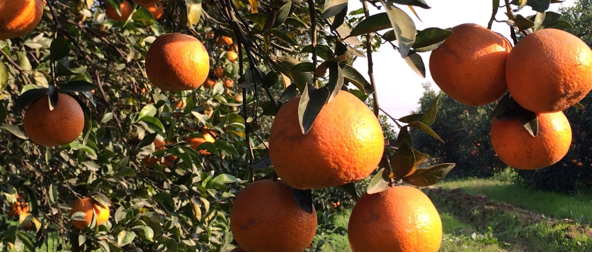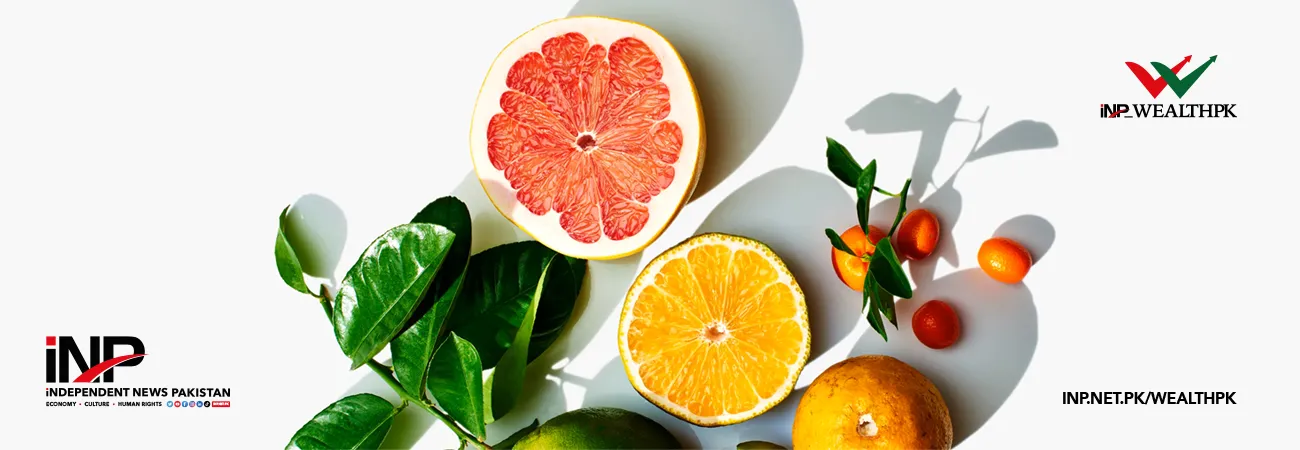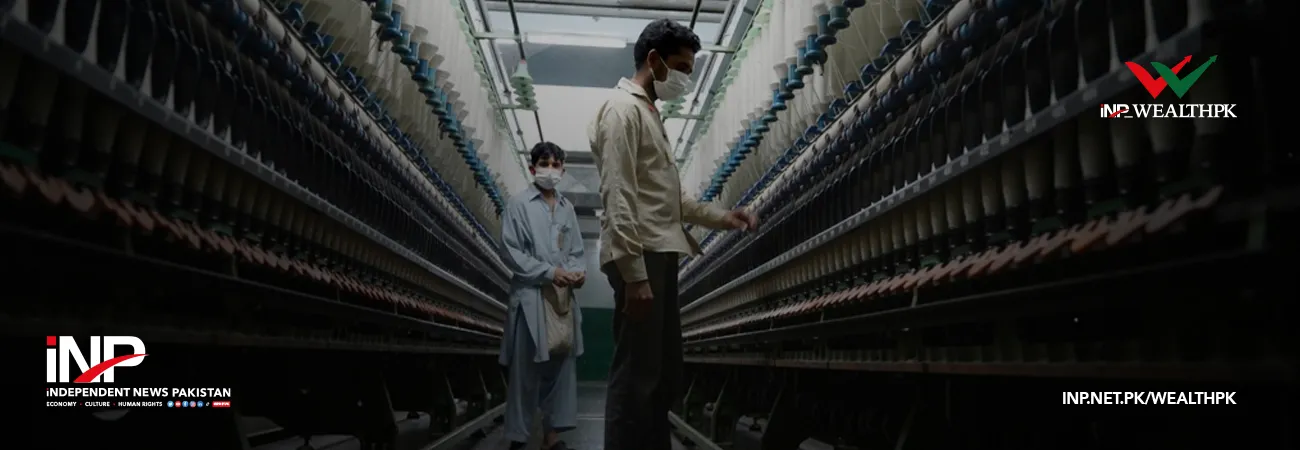INP-WealthPk
Arooj Zulfiqar
Pakistan's citrus industry faces mounting threats from climate change, highlighting the urgent need for climate-smart seeds to ensure sustainable

production and global competitiveness.
“Pakistan, renowned for its citrus production, is facing significant challenges as climate change disrupts traditional agricultural practices,” said Nurullah, a senior scientific officer at National Agricultural Research Centre (NARC). Speaking to WealthPK, he said, “With oranges, kinnow and other citrus fruits accounting for a substantial portion of the country's agricultural exports, the threat posed by shifting weather patterns, soil degradation and water scarcity has placed the future of this critical sector in jeopardy. To ensure sustainable production and maintain competitiveness in global markets, the need for climate-smart seeds has become essential for Pakistan’s citrus industry.” Citrus accounts for about 30% of Pakistan's fruit production, according to report by the Trade Development Authority of Pakistan.
Citrus is cultivated predominantly in Sargodha, Bhalwal, Toba Tek Singh, Khanewal, Multan, Layyah and Fateh Jhang of Punjab province (above 90%), and in smaller quantities in Swat, Swabi, Khanpur and Haripur in Khyber Pakhtunkhwa. Nurullah said, “Traditional seed varieties, which were once robust, now faili to adapt to the unpredictable climate. Consequently, farmers face dwindling profits as fruit quality deteriorates and production costs rise.” Therefore, he said the vulnerability of citrus farmers to these challenges called for immediate attention to sustainable solutions. “Hence, there is a dire need for climate-smart seeds. Climate-smart agriculture, particularly the development and use of climate-smart seeds, offers a lifeline to struggling citrus farmers. These seeds are specifically engineered to withstand the environmental stresses brought on by climate change,” Nurullah said.
The NARC scientist said, “Resistant to drought, pests, and diseases, climate-smart seeds could revitalise Pakistan’s citrus orchards and ensure their resilience to future environmental challenges.” In this regard, Huazhong Agricultural University, Wuhan (HZAU), and the University of Agriculture Faisalabad (UAF) have inked a material transfer agreement to boost the citrus industry. The agreement was signed at a recent ceremony. Prof Liu Yongzhong, a collaborative scientist from HZAU, handed over nine citrus varieties – budwood – to Prof Iqrar Ahmad Khan, Vice-Chancellor of UAF, under the Higher Education Commission-funded project (CEPC-CRG-447). The agreement marks a major step in the ongoing collaboration between the two universities aimed at enhancing the citrus industry in Pakistan.
Credit: INP-WealthPk













